Preston outlines measure to overhaul state’s tax sale system, stop predatory speculation
- Details
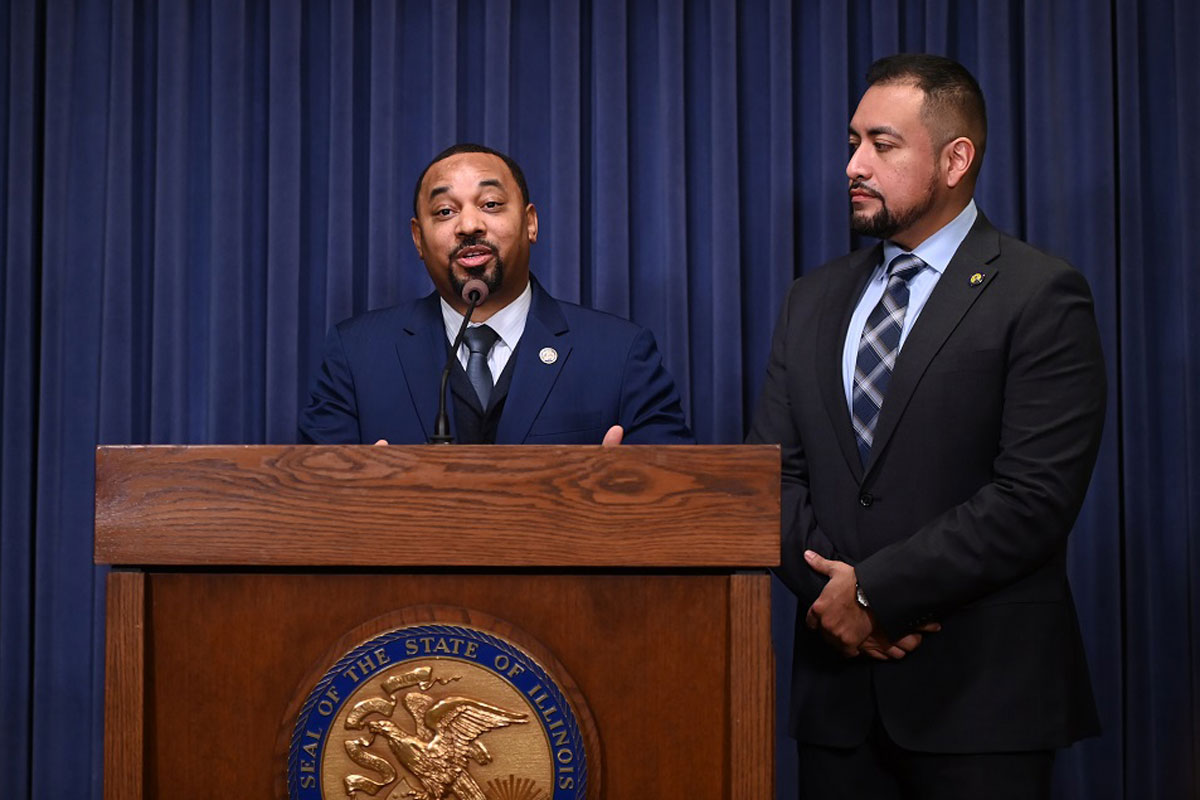 SPRINGFIELD – State Senator Willie Preston held a press conference Tuesday to outline his Property Justice and Community Recovery Act – long-term structural reform to stop wealth extraction from disinvested communities, which will in turn stabilize neighborhoods.
SPRINGFIELD – State Senator Willie Preston held a press conference Tuesday to outline his Property Justice and Community Recovery Act – long-term structural reform to stop wealth extraction from disinvested communities, which will in turn stabilize neighborhoods.
“For too long, our tax sale system has enabled predatory investors to exploit struggling homeowners and extract wealth from our most vulnerable communities,” said Preston (D-Chicago). “This legislation would flip that broken system on its head. We're working to end risk-free speculation, forgiving crushing tax debt when it's unjust, and putting properties back into the hands of residents, nonprofits and local developers who will actually invest in our neighborhoods."
Read more: Preston outlines measure to overhaul state’s tax sale system, stop predatory speculation
Senate Democrats highlight progress as interstate shootings decrease four years in a row
- Details

SPRINGFIELD — Following efforts by members of the Illinois Senate Democratic Caucus to prioritize public safety, the Illinois State Police announced Illinois has had a decrease in interstate shootings for four straight years. Interstate shootings statewide decreased by 31% in 2025 compared to 2024, with no fatal shootings in 2025. This is the first time in close to a decade with zero interstate shooting fatalities.
“State officials and law enforcement are working around the clock to improve public safety across Illinois,” said State Senator Laura Murphy (D-Des Plaines). “I am happy to have contributed legislation that assists in police operations on the highway, and will continue to prioritize evidence-based solutions that gives law enforcement additional tools and keeps roads safer for residents.”
Read more: Senate Democrats highlight progress as interstate shootings decrease four years in a row
Koehler praises transformation of Wonsook Kim College of Fine Arts at ISU
- Details
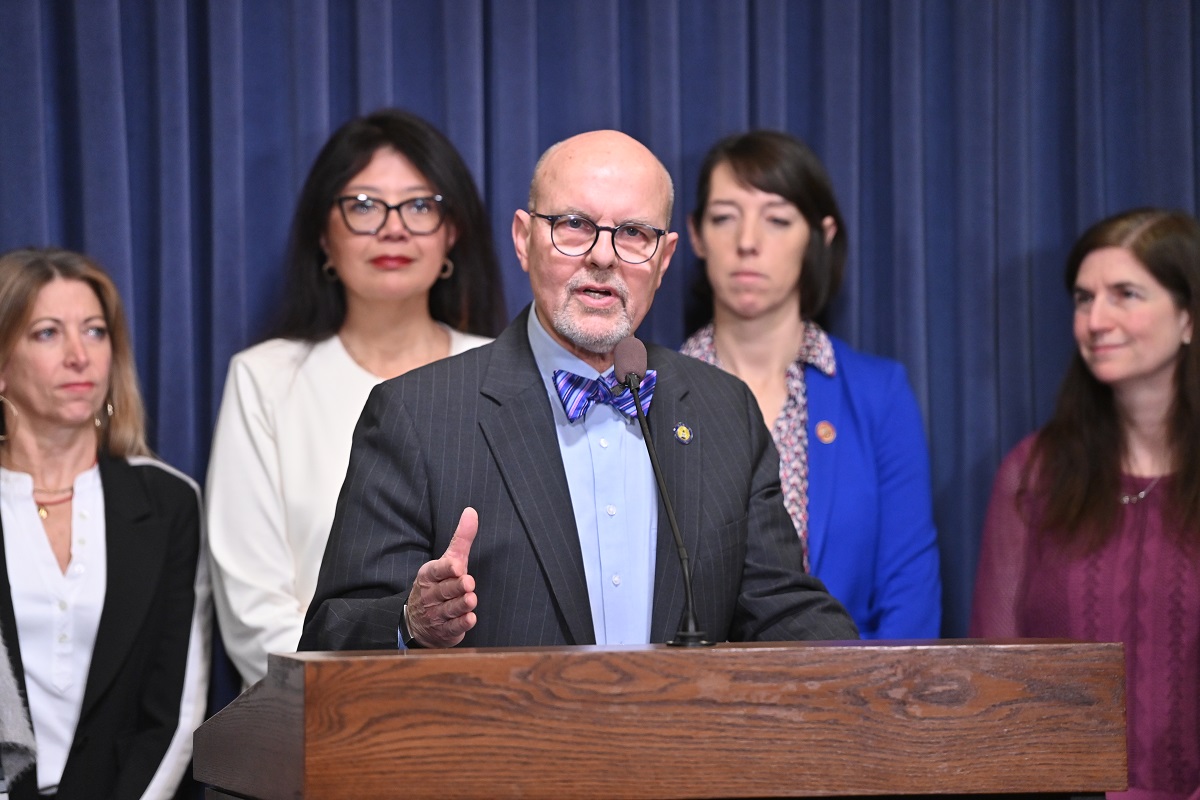
NORMAL — State Senator Dave Koehler today joined Illinois State University leaders, faculty and community members to celebrate the groundbreaking transformation of the Wonsook Kim College of Fine Arts. This project expands opportunities for students and strengthens arts and culture in Central Illinois.
“This transformative project represents an investment not only in the arts, but in our youth and the commitment to creating more creatives in our state," said Koehler (D-Peoria). "ISU’s new fine arts building will help support the expressive community of students already there, attract bright new talent and contribute to the cultural growth of our region."
This multi-phase project, made possible by the Rebuild Illinois program, renovates and reconfigures existing facilities to provide updated teaching and rehearsal spaces, improved accessibility and enhanced areas for community engagement. The improvements will better position the college to train future artists, educators and creative professionals who contribute to the region’s cultural and economic life.
Read more: Koehler praises transformation of Wonsook Kim College of Fine Arts at ISU
Turner and Senate Democrats announce $2 million investment for homelessness relief
- Details
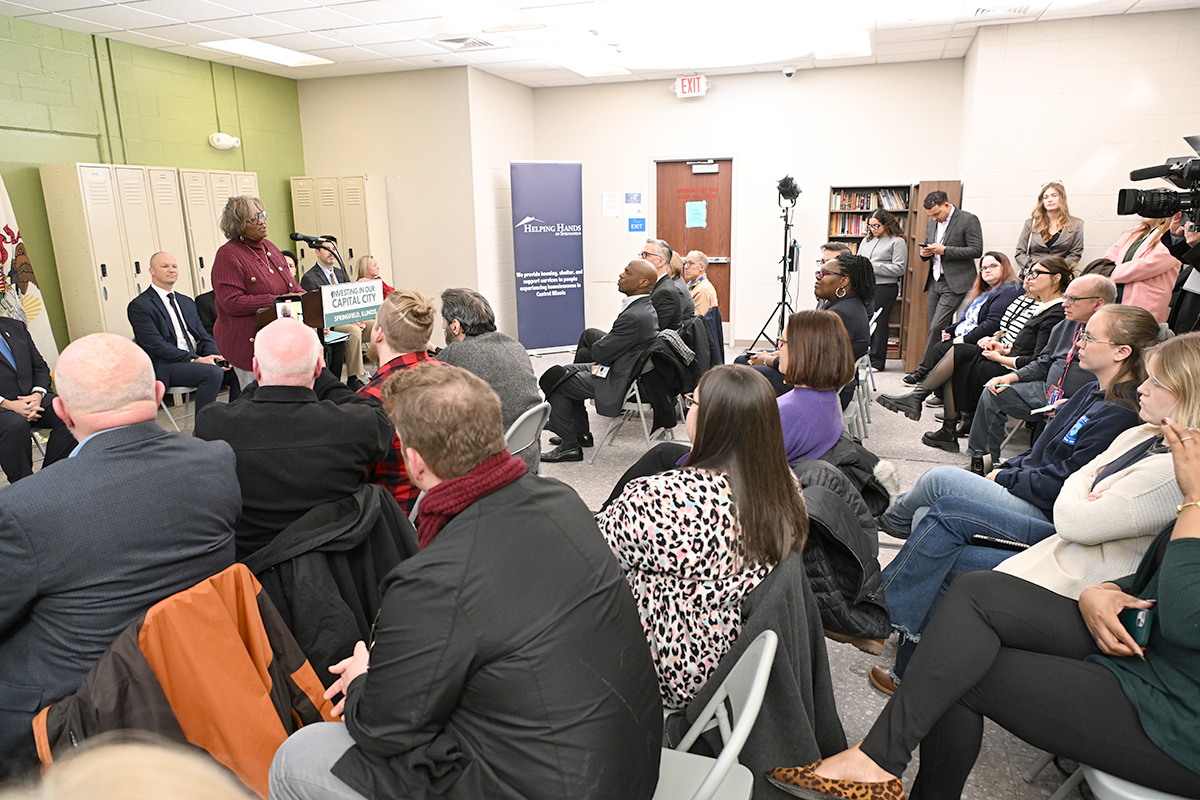
SPRINGFIELD – State Senator Doris Turner announced an investment of $2 million in community organizations dedicated to combatting homelessness in Central Illinois. These grant investments are part of the state’s interagency Home Illinois Plan, an initiative intended to drive state funding and policy toward preventing and eventually reaching functional zero homelessness – a goal where the state prevents homelessness whenever possible and ensures that if homelessness does occur, it is brief, rare and singular.
"With this funding, we are fulfilling our responsibility to help our neighbors stay housed and support our communities as they recover from the far-reaching effects of housing instability," said Turner (D-Springfield). "Every family in Illinois deserves a safe, secure place to call home, and this investment is essential to helping more families find stability, hope and a path forward."
Read more: Turner and Senate Democrats announce $2 million investment for homelessness relief
More Articles …
Page 3 of 735


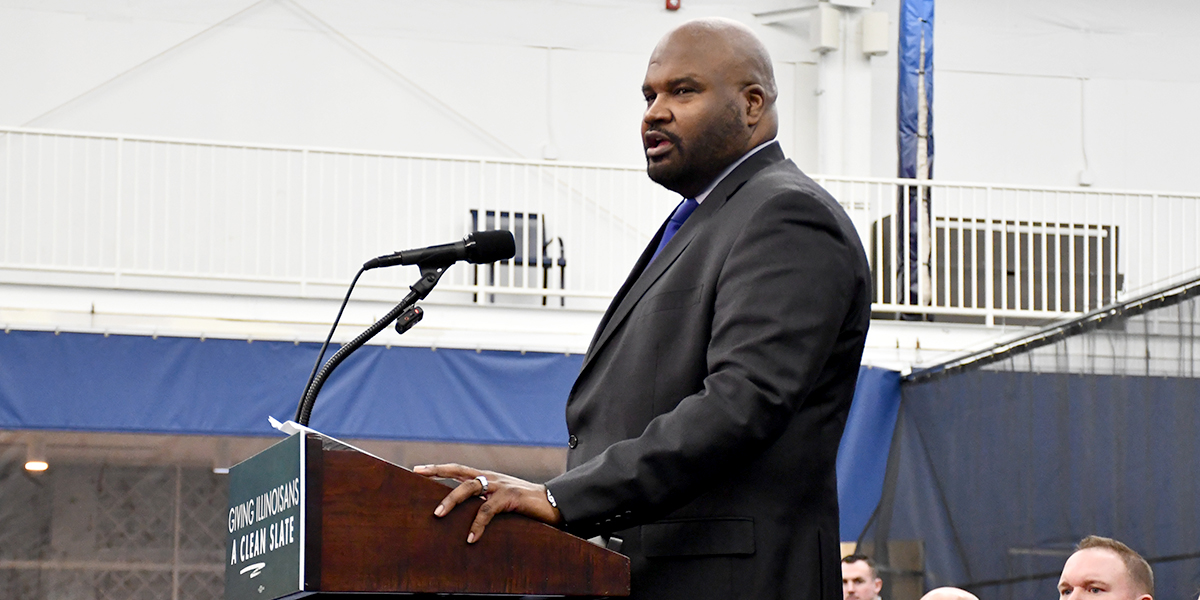
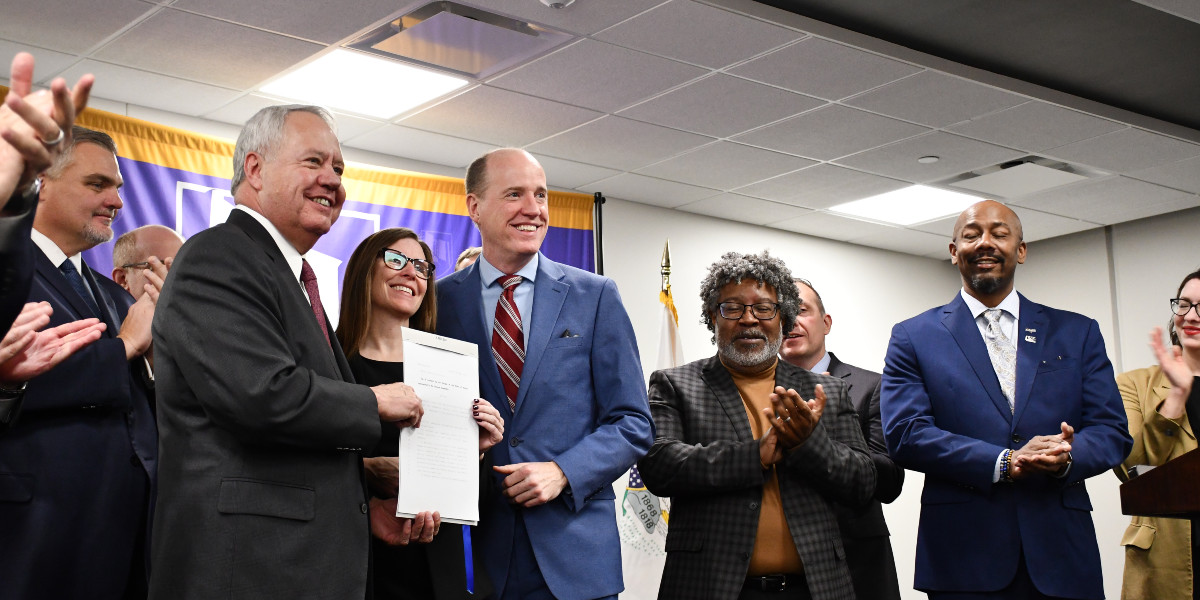
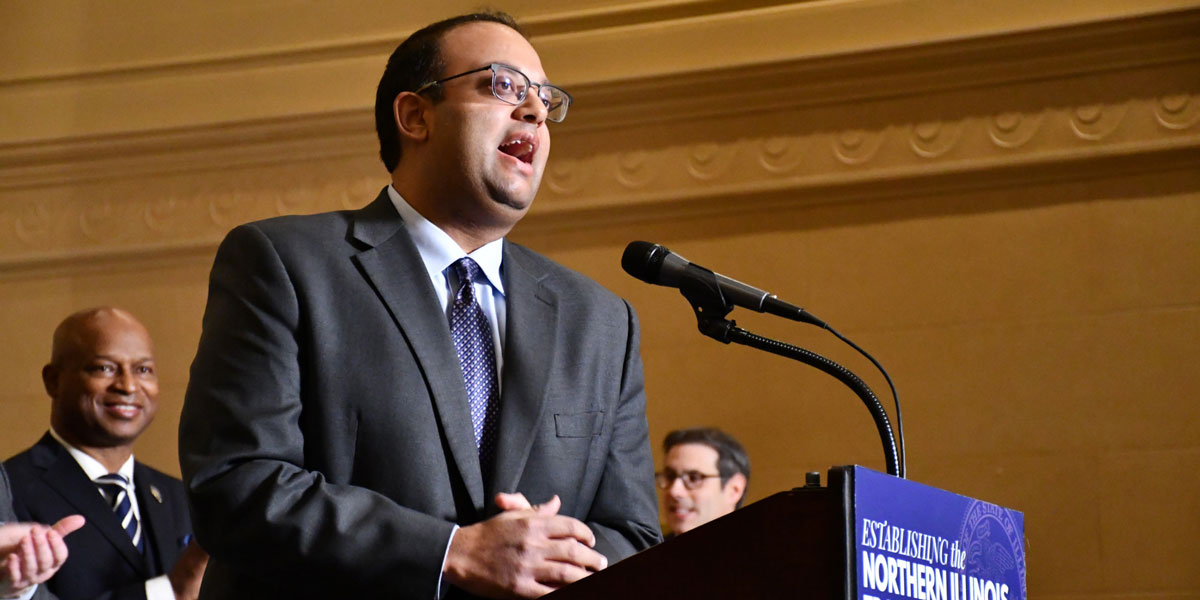
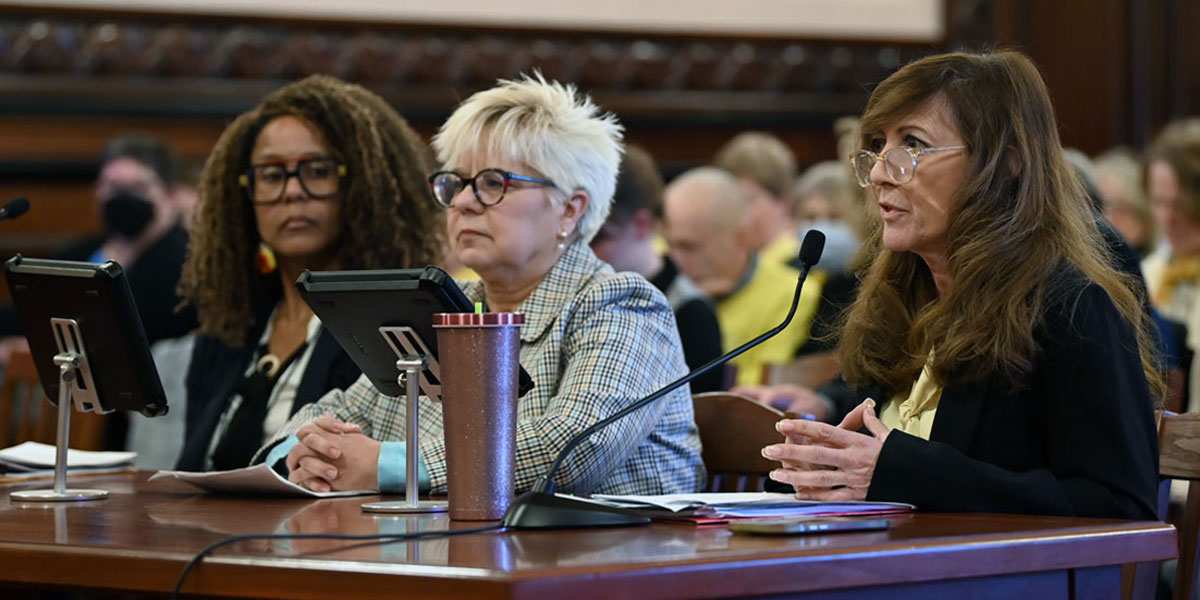


















 © 2026 Illinois Senate Democratic Caucus
© 2026 Illinois Senate Democratic Caucus